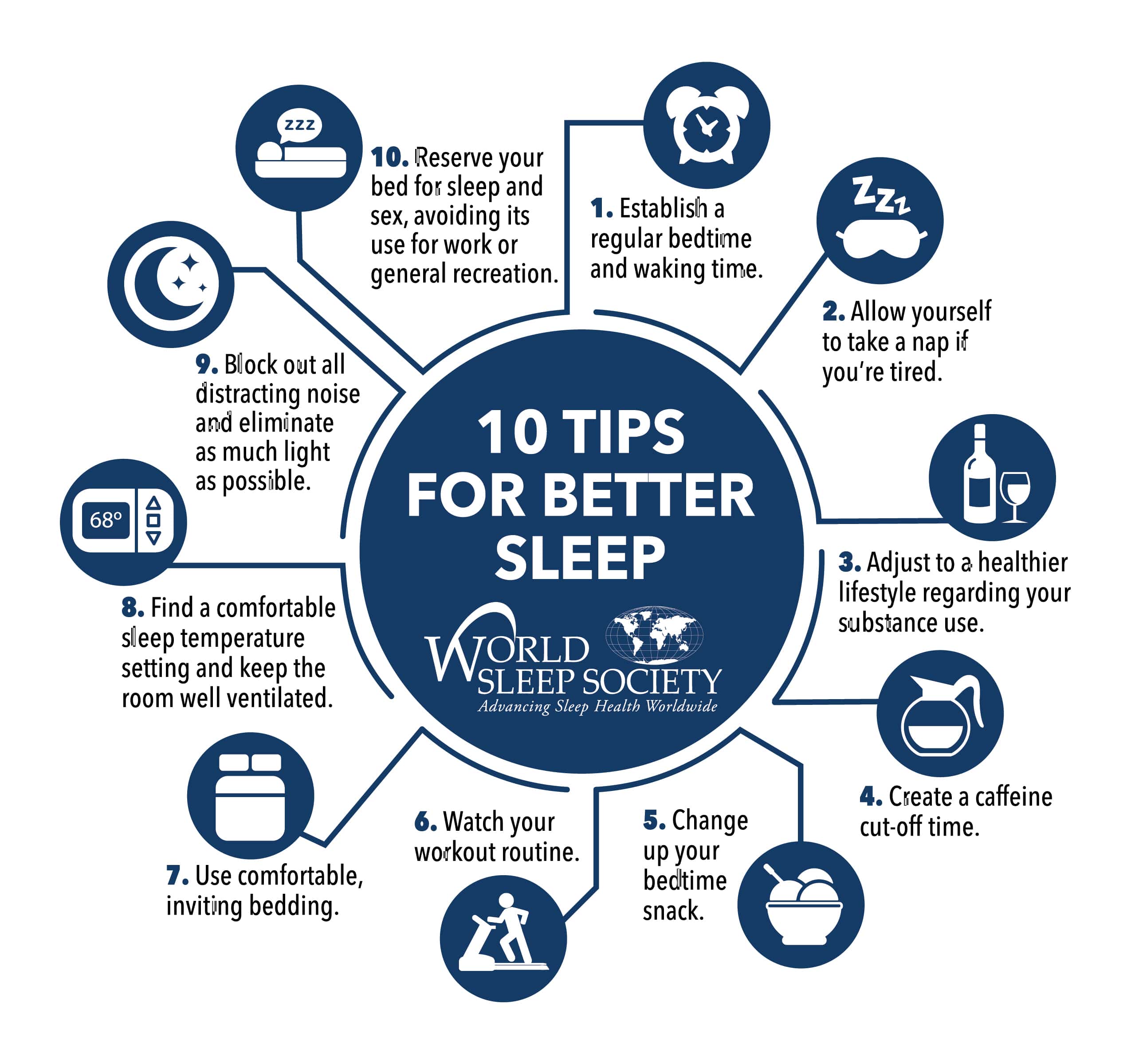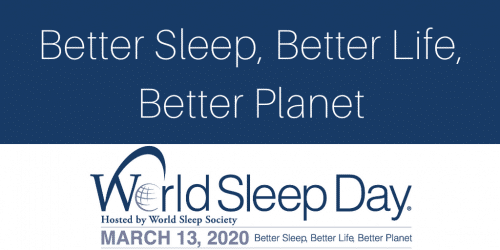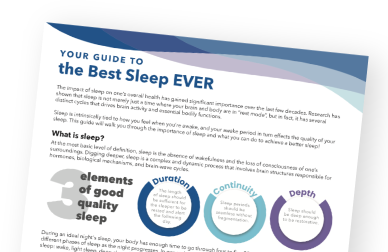Every year, on the third Friday of March, organizations and individuals around the globe work together in raising awareness on the importance of quality sleep and the impact it has on society. Aveiro Sleep is proud to represent Canada as an appointed delegate of World Sleep Day in sharing useful sleep tips and facts through our interactions with patients and communication channels.
Who created World Sleep Day?
The annual awareness event was started by a group of dedicated healthcare providers and members of the medical community working and studying in the area of sleep medicine and research. The goal of the first World Sleep Day was to bring together sleep healthcare providers to discuss and distribute sleep information around the world.
Why was World Sleep Day created?
Time and time again, sleep medicine professionals and researchers came up against the belief that sleep was not important enough in personal health and well-being to be a priority. That coupled with society’s 24/7 flow, the founders of this awareness event aim to celebrate the importance of healthy sleep.
The 2020 Slogan: Better Sleep, Better Life, Better Planet
This years’ theme shines a spotlight on sleep as one of the key components of health, allowing for better decision making and cognitive understanding in even big issues, such as our planet. This focus is purposefully broad in meaning, surrounding the message that quality of life can be improved with healthy sleep. Conversely, when sleep fails, health declines, decreasing quality of life.
As a forth year endorsing World Sleep Day, Arianna Huffington, founder and CEO of Thrive Global says, “Sleep is central to every aspect of our well-being—our physical health, our mental health, our productivity and our decision-making. Our world is facing huge crises on multiple fronts, and we need all the resilience, wisdom and sound decision-making we can muster. We can’t take care of our world if we don’t take care of ourselves—and that begins with sleep.”
Around the world
Here are just a few activities of how organizations are promoting World Sleep Day:
- The Health Promotion Department, 4 Wing CFB in Cold Lake Alberta is hosting a World Sleep Day kiosk and candle-light yoga.
- The Sleep Society of Thailand is giving a free seminar to promote sleep heath, obstructive sleep apnea, nutrition and mental health.
- The American Alliance for Healthy Sleep (AAHS) will provide an online “Self-screen for Sleep” campaign encouraging the public to recognize the importance of healthy sleep to overall health, wellness and quality of life.
- The Spire Hull and East Riding Hospital in the UK will be bringing awareness of World Sleep Day by hosting a staff pajama day and generating donations for a local charity.
World Sleep Society’s Tips for a Better Sleep

Extent of the Epidemic
- 35% of people do not feel they get enough sleep, impacting both their physical and mental health.1
- Obstructive sleep apnea (OSA) affects approximately 4% of the adult population.1 If not properly managed, OSA can have a significant impact on a person’s health and well-being.
- Restless Legs Syndrome is a common disorder and occurs in between 3-10% of the population, although the number of people affected and the severity of the condition differs between countries.
- A US study has estimated the annual costs of insomnia to be between $92.5 billion and $107.5 billion.2
- 71,000 people suffer injuries every year due to sleep-related accidents.3
- 1,550 people die because of sleep-related accidents.3
- 46% of individuals with frequent sleep disturbances report missing work or events, or making errors at work, compared to 15% of healthy sleepers.4
Consequences of Sleep Disorders
Sleep disorders cause significant individual and societal burden and form a serious public health problem.
Obstructive sleep apnea significantly impacts health and well-being. The drop in oxygen that occurs when breathing stops due to OSA puts a strain on the heart and can lead to a number of serious health conditions. This includes heart disease, diabetes, stroke, hypertension, among other conditions. Short term affects can be memory loss, extreme fatigue, anxiety, and mood swings.
Directly or indirectly, disrupted sleep can have a negative effect on family life and relationships by affecting a person’s mood and the way in which they are able to perform daily activities and interact socially.
How can you take action?
Share this information with others! If you or a loved one is experiencing loud snoring, trouble sleeping, or daytime symptoms such as excessive daytime fatigue, mood swings, or headaches, talk to a physician. Your healthcare provider can guide you in the appropriate steps in obtaining a sleep test or provide other appropriate recommendations.
For more information about World Sleep Day, visit www.worldsleepday.org.
Aveiro Sleep provides Home Sleep Apnea Testing, CPAP therapy and support services catered to obstructive sleep apnea. Our local clinics allow us to test, treat, and support thousands of Albertans close to their homes.
Call now to speak to a Patient Success Coordinator 1-855-852-2989 or contact us through our online form.
1. The ‘Philips Index for Health and Well-being: A global perspective’ – www.philips-thecenter.org/the-philips-global-index. Last accessed on 28 February 2011
2. Reeder CE, Franklin M, Bramley TJ. Current landscape of insomnia in managed care. Am J Manage Care 2007
3. National Highway Traffic Safety Administration (NHTSA) www.nhtsa.dot.gov
4. National Sleep Foundation www.sleepfoundation.org




